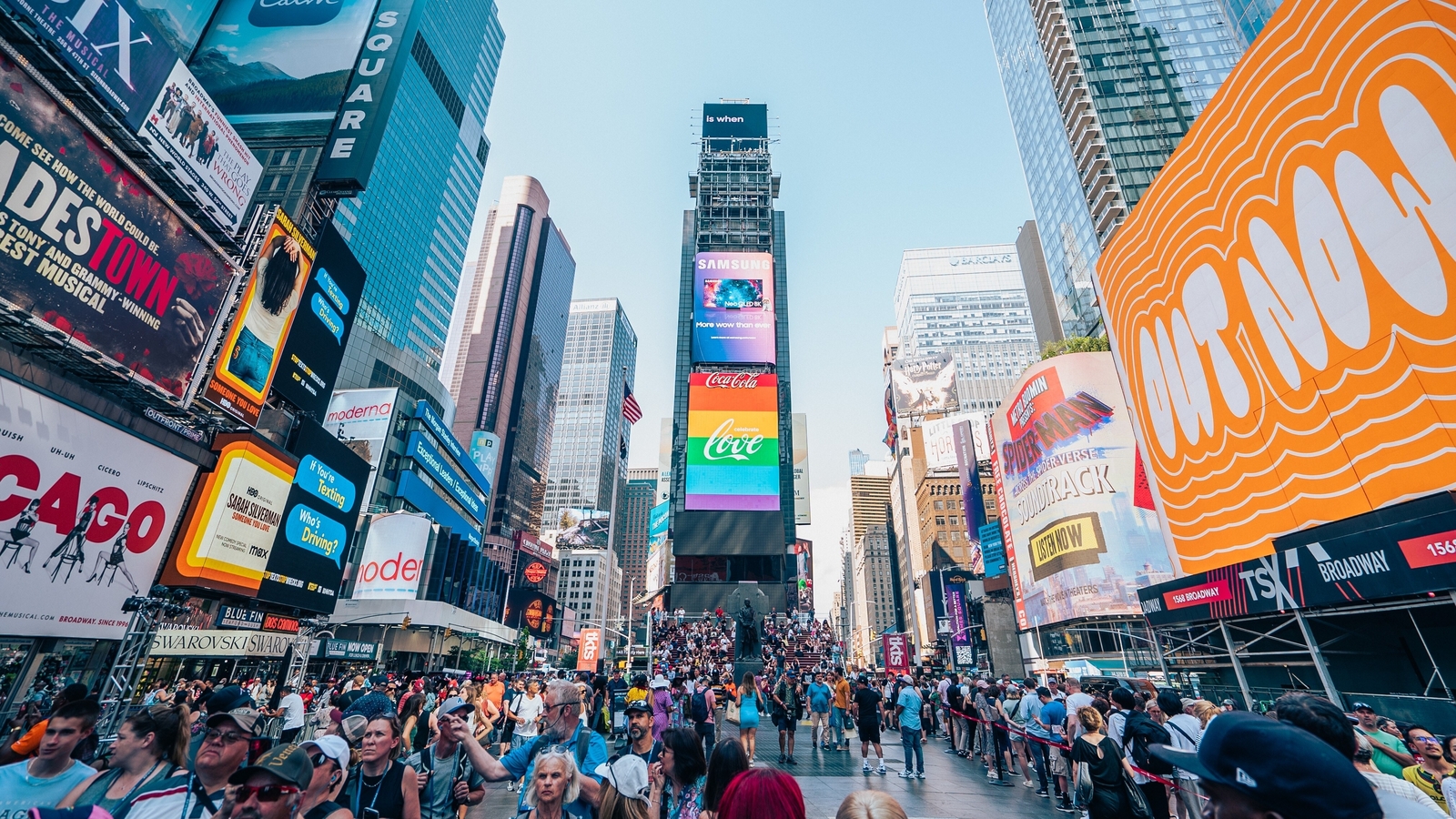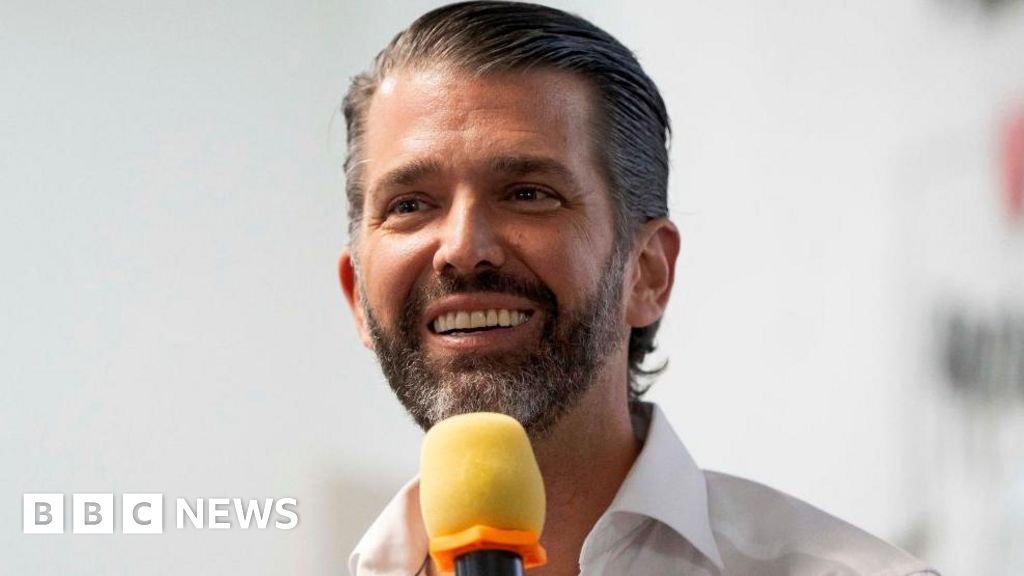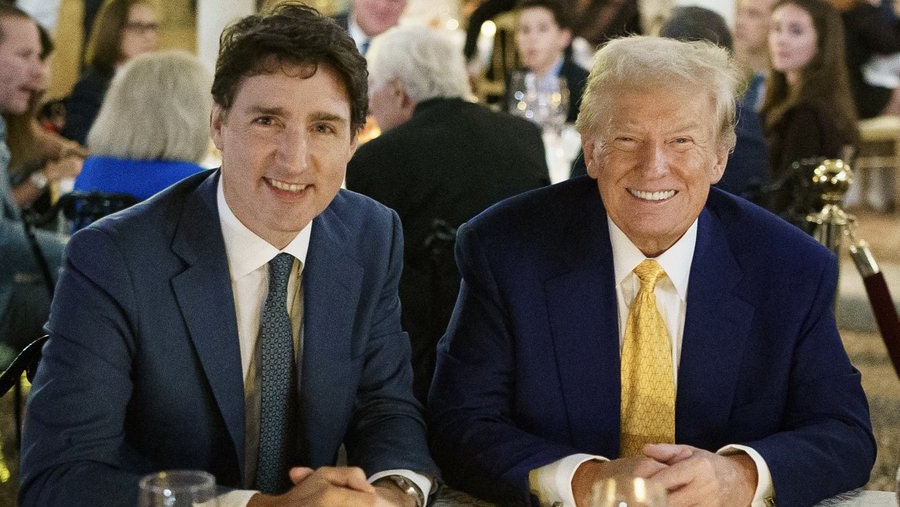World
How Christianity shapes politics in America

IN 1791 AMERICA built a wall. The First Amendment to the Constitution banned the establishment of a national religion and protected freedom of worship: Thomas Jefferson called it a “wall of separation between church and state”. But there were always cracks. Since the founding of the republic, Christianity has been the religion of the majority—and many Christians have felt an obligation to bring their faith into politics. Although more and more Americans say they are not religious, almost two-thirds are Christian, according to the Public Religion Research Institute, a non-profit. In the 1980s white Christians—particularly “born-again” evangelicals—emerged as a formidable voting bloc for the Republican Party. According to a survey by the Pew Research Centre, 60% of Protestants—including 81% of white evangelicals—plan to vote for Donald Trump in the presidential election in November. Here are four books and a podcast that explain the relationship between politics and Christianity in America.
Religion in American Politics. By Frank Lambert. Princeton University Press; 296 pages; $21.95 and £17.99
Delegates to the constitutional convention of 1787 ultimately decided that a haven for persecuted Christian minorities could not endorse one interpretation of the faith. However, some wanted to establish a national religion. William Lancaster, a delegate to North Carolina’s ratification convention, worried that, although Americans of his day would not elect a non-Protestant, the “millions not yet in existence” might. (Jefferson, the third president, rejected conventional Protestantism.) Many Americans believed that their country was God’s chosen land and that the government should protect Christianity’s role in it. Their heirs are the Christian nationalists of today. Frank Lambert follows the argument through the centuries. It raged during the Civil War, the fundamentalist backlash against science in the early 20th century and the Cold War. A chapter on African-American Christianity and the civil rights movement is particularly powerful. Mr Lambert unfortunately has less to say about Hispanic Christians. Still, this book shows just how much, despite the First Amendment, Americans have always disagreed about the role of religion in the republic.
20 Myths about Religion and Politics in America. By Ryan Burge. Fortress Press; 249 pages; $23.99 and £16.99
Data-led analysis of religion is uncommon. Ryan Burge’s book is both numerate and conversational. He devotes a short chapter to each of his 20 myths, ending each by suggesting further reading. Mr Burge paints a particularly detailed portrait of white evangelical voters. At 14% of the population, they account for the same share as they did during Ronald Reagan’s first term as president. The proportion of those who never attend church is growing, but many of the people in that group still say that religion is very important to them. Unlike most youngsters, evangelical youths are just as conservative as their parents and grandparents. Mr Burge is also insightful about black Christians: they are very likely to support Democrats and much more likely than their white co-religionists to hear about politics from the pulpit. But a plurality call themselves “moderate”, and there are almost as many “conservatives” among them as “liberals”. Those findings shed light on Republicans’ prospects of winning their votes.
The Kingdom, the Power and the Glory. By Tim Alberta. Harper; 512 pages; $35
Tim Alberta is a journalist at the Atlantic and a practising Christian. He is thus in a good position to give an insider’s account of the problems within American evangelicalism. Mr Alberta identifies July 4th 1976 as a turning point: it was then that Jerry Falwell, a television preacher, proclaimed to a crowd of 25,000 that “the devil” invented the idea that politics and religion should not mix “to keep Christians from running their own country”. That notion is the core of American Christian nationalism. Falwell’s movement, the Moral Majority, promoted conservative social values and championed the political right. In 2020 85% of white evangelicals who regularly went to church voted for Donald Trump. Mr Alberta calls the former president a “lecherous, impenitent scoundrel”. But he is interested in what spurred evangelicals to back him. His book is a personal account. He begins in his own church and reports on hundreds of congregations—from packed megachurches to chapels with few congregants. His diagnosis is clear: power-hungry leaders are perverting the gospels and preying on the anxieties of their flock, with worrying consequences for American politics and the church.
The Religion of American Greatness. By Paul Miller. IVP Academic; 304 pages; $30 and £24.99
Paul Miller’s book is another insider’s account of Christian nationalism. He is a Southern Baptist and, unlike Mr Alberta, describes himself as “politically and theologically conservative”. (He was an adviser to President George W. Bush.) His book is “a work of Christian political theory” and advocates a kind of “civic republicanism” that is “consistent with Christianity”. But he draws a sharp distinction between his philosophy and Christian nationalism, which he describes and criticises. Some readers may think he contradicts himself: he believes, for example, that Christian principles should not be the basis of government, but argues that foes of abortion are right to oppose it on religious grounds. Still, Mr Miller’s book does plenty of even-handed work. By clearly defining the terms he uses (for example, what differentiates nationalism from patriotism and cultural identity from political identity) he brings welcome rigour. His book also offers insight into how a traditional Republican views the new American right. Its core argument is that Christian nationalism is fundamentally at odds with American liberalism—and with Christian teachings.
The Rise and Fall of Mars Hill. A podcast from Christianity Today
Founded in 1996, Mars Hill was once among the most successful evangelical megachurches in America. Its main site was in Seattle, the least religious city in the country. Mark Driscoll, its charismatic head pastor, was a working-class local, whose confrontational style appealed to disaffected Gen X congregants. Mars Hill grew rapidly, eventually to 15 sites; Mr Driscoll’s sermons were watched by millions on YouTube and his books became New York Times bestsellers. But all was not well. Congregants and church elders interviewed in “The Rise and Fall of Mars Hill”, a podcast released in 2021, say that Mr Driscoll bullied and sought to control members of his flock. The podcast reports how in 2011 the church hired a marketing company to buy one of Mr Driscoll’s books in bulk to place it on the bestseller list. Eventually, these allegations caught up with Mars Hill. In 2014 Mr Driscoll resigned, saying that he had “confessed to past pride, anger and a domineering spirit” but pointing out that there were “no charges of criminal activity, immorality or heresy”. Mars Hill collapsed. The story of one church—which pressed women to confine themselves to traditional roles and put on “trials” of supposed demons—shows the dark side of one sort of conservative Christianity: how religion and politics can collide in the pulpit, the power of pastors to shape believers’ views and the painful consequences when that power is abused.
Also try
Read our review of a book about the rise and fall of a hippie church. The question of why evangelical Christians support Mr Trump so fervently is a fascinating one, which we’ve tried to answer on a number of occasions. Our Lexington columnist wrote about this early in Mr Trump’s presidency. A Christmas special in 2023 returned to the subject. Although Americans go to church less often, they are reluctant to vote for atheists. Read our report on the death in 2018 of Billy Graham, the most important American evangelical of the past century.










